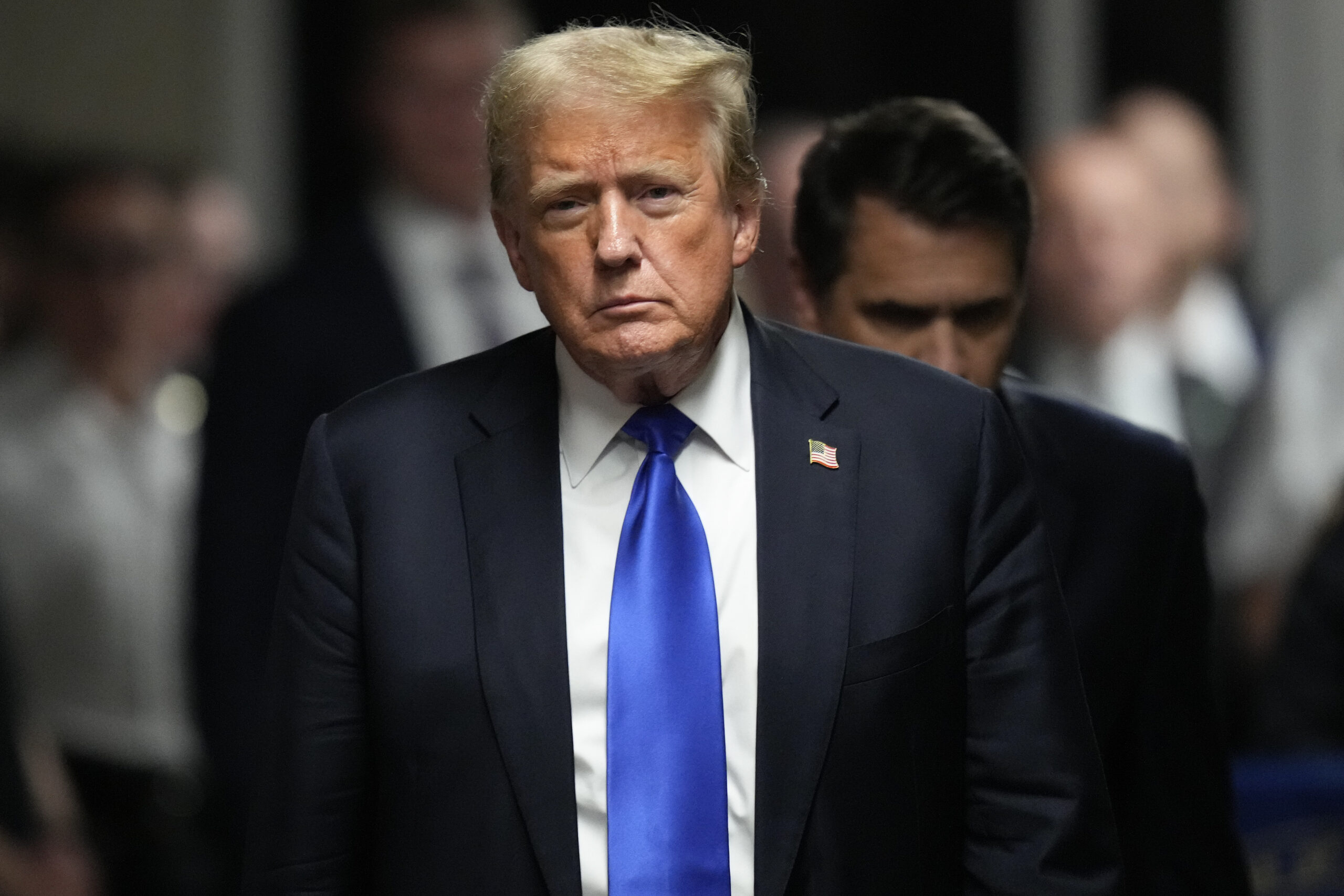Trump Wants Biden Subpoenaed: What That Means Legally
Trump Wants Biden Subpoenaed: What That Means Legally the political tempest continues to swirl as yet another dramatic twist unfolds on the national stage: Trump subpoena Biden. That’s right — the former President is seeking to draw his successor directly into legal proceedings. If that sounds unprecedented, it is. But more than being a spectacle, this move carries significant legal, constitutional, and political implications.
Let’s take a deep, insightful journey into what this potential subpoena truly means, why it matters, and how it could reshape not just the narrative of 2024, but the very boundaries of executive accountability in America.
Setting the Stage: A Country in Legal Whirlwind
With both Donald Trump and Joe Biden situated squarely in the spotlight of the upcoming 2024 election, the idea of a Trump subpoena Biden scenario couldn’t have come at a more charged moment. While both are no strangers to controversy, this latest maneuver takes the legal theatrics to an entirely new dimension.
Donald Trump has found himself navigating a labyrinth of legal challenges. From ongoing investigations into classified documents to accusations related to January 6th and hush money payments, Trump’s defense teams are pulling every legal lever available. The concept of subpoenaing President Biden emerged as part of a broader strategy: shift the focus, question the integrity of the institutions investigating him, and suggest potential political bias.
But can a former president actually subpoena a sitting president? Let’s dig into the marrow of this legal conundrum.

The Legal Framework: Subpoenas and Executive Immunity
Subpoenas are legally binding documents that compel individuals to appear in court or produce documents. They are not casual requests — they carry weight. But when the subpoena is aimed at a sitting President of the United States, a different set of rules, doctrines, and protections comes into play.
Executive Privilege vs. Subpoena Power
Historically, U.S. presidents have invoked executive privilege to avoid disclosing sensitive information. This privilege exists to protect the confidentiality of presidential communications and uphold the independence of the executive branch. However, it’s not absolute.
In the 1974 Supreme Court case United States v. Nixon, the court ruled that executive privilege could not be used to withhold evidence in criminal trials. This landmark decision clipped the wings of presidential secrecy, establishing that even the most powerful office in the world is not above the law.
Still, subpoenaing a sitting president remains exceedingly rare. Why? Because of legal doctrines rooted in separation of powers, presidential immunity, and the logistical burden of such a demand on the executive branch.
A Trump subpoena Biden request would undoubtedly trigger a constitutional clash.
Constitutional Showdown: What Happens Next?
Should Trump formally issue a subpoena to Biden, several things would likely follow:
- Legal Filings and Challenges: President Biden’s legal team would almost certainly file a motion to quash the subpoena. This would ignite a legal battle that could ascend rapidly through the federal court system.
- Supreme Court Involvement: Due to the significance and rarity of such a request, the issue might be fast-tracked to the Supreme Court. Legal scholars would eagerly analyze whether the court would favor institutional precedent or lean into new interpretations.
- Congressional Ripples: This development could also embolden political factions in Congress, potentially catalyzing new investigations, hearings, or even impeachment chatter — particularly if the GOP seeks to leverage it for electoral gain.
The Trump subpoena Biden saga could become the centerpiece of America’s legal-political discourse for months.
Political Theater or Legal Necessity?
Critics argue that Trump’s strategy has less to do with legal necessity and more to do with political spectacle. By targeting Biden, Trump could aim to blur the lines between defendant and accuser, fostering a narrative that he’s the victim of a partisan justice system.
Others contend that any legal basis for subpoenaing Biden must be grounded in demonstrable relevance. That means Trump’s attorneys would need to show that Biden possesses information critical to a case — not merely opinions or retrospective commentary.
This becomes a critical threshold. Courts have consistently rejected subpoenas deemed to be fishing expeditions. To survive legal scrutiny, a Trump subpoena Biden demand would need to meet stringent relevance and specificity criteria.
Historical Echoes: Have Presidents Ever Been Subpoenaed?
Presidential subpoenas are rare, but not unheard of. Here’s a quick glance at the historical landscape:
- Thomas Jefferson (1807): Subpoenaed in the treason trial of Aaron Burr. Jefferson partially complied but emphasized presidential discretion.
- Richard Nixon (1974): As mentioned, the Supreme Court ruled against Nixon’s use of executive privilege, leading to his resignation.
- Bill Clinton (1998): Gave testimony via video in a deposition related to the Monica Lewinsky scandal.
None of these cases involved a former president subpoenaing a sitting one. That makes the Trump subpoena Biden angle wholly unique — legally and politically.
How Biden Might Respond
Assuming such a subpoena is issued, the Biden administration has several potential pathways:
- Outright Refusal: Asserting executive privilege and declining to comply.
- Negotiation: Offering limited cooperation, such as written responses or deposition under special conditions.
- Compliance: Unlikely, but not impossible — particularly if politically expedient or if Biden believes transparency strengthens his stance.
Each option carries its own risks and rewards. Politically, any misstep could be weaponized during the 2024 campaign.
Media Frenzy and Public Perception
The media reaction to the Trump subpoena Biden news has been predictably explosive. Across cable news, podcasts, and online platforms, this legal standoff has sparked fierce debates over everything from rule of law to political persecution.
Pundits on the left have characterized the move as a desperate ploy, while some conservative voices have praised it as an act of accountability. The result? An already polarized electorate gets further entrenched.
Polls show that legal drama tends to influence public opinion only marginally, but high-profile cases — especially involving two presidents — could alter voter turnout or sway the undecided.
Potential Outcomes and Scenarios
So, where does this all go? Here are a few possible scenarios that legal analysts are contemplating:
1. Subpoena Dismissed by the Courts
A judge may rule that the subpoena is not legally enforceable due to executive privilege or lack of necessity. This would be a win for Biden — and a blow to Trump’s legal strategy.
2. Biden Provides Limited Testimony
Under specific conditions, Biden could provide written testimony or allow intermediaries to speak on his behalf. This would preserve executive authority while acknowledging judicial interests.
3. Supreme Court Rules in Favor of Subpoena
Highly unlikely but dramatic — this outcome would signal a redefinition of executive power and accountability, reshaping the legal landscape for future presidents.
4. Subpoena Fuels Political Momentum
Regardless of legal outcome, the mere existence of a Trump subpoena Biden effort may galvanize Trump’s base, distract from other investigations, or prompt new campaign narratives.
Legal Experts Weigh In
Constitutional scholars remain divided. Some believe this is a dangerous precedent that could weaken executive function. Others see it as a vital step in upholding legal equality — that no one, not even the president, is above the law.
Harvard law professor Martha Middleton opines, “The judiciary must tread carefully. This is not just about Biden or Trump — it’s about the structural integrity of our constitutional framework.”
Meanwhile, conservative legal analyst Alan Prescott argues, “If there’s a factual basis, Biden should respond. Transparency serves democracy, not secrecy.”
It’s a battle not just of law, but of legitimacy, public trust, and institutional survival.
International Perspectives
The global community is also watching. Other democratic nations with parliamentary systems, like the U.K. and Canada, handle executive accountability differently — with more robust mechanisms for questioning sitting leaders.
But in the U.S., with its entrenched separation of powers, a Trump subpoena Biden case would seem almost surreal. International media outlets have framed it as a test of America’s political maturity and legal coherence.
Some foreign legal experts worry that the process, if mismanaged, could degrade U.S. global credibility. Others admire the audacity of confronting power, regardless of who wields it.
Campaign Trail Fallout
Let’s not forget: both Trump and Biden are actively campaigning. This legal storm will spill into stump speeches, ads, debates, and social media.
Trump could use the subpoena to paint Biden as evasive or fearful, while Biden’s team might frame it as a stunt — proof of Trump’s disregard for institutional norms.
This back-and-forth could further energize base voters, but alienate independents seeking stability. It’s electoral chess at the highest level, and the board just got flipped.
Final Thoughts: Democracy in the Crosshairs
A Trump subpoena Biden scenario is not merely a legal move — it’s a crucible moment for American democracy. It forces the country to confront profound questions:
- Can a sitting president be compelled to testify?
- How far does executive privilege extend?
- Should courts intervene in political standoffs?
The answers won’t come easily. But what’s clear is that the consequences of this case will echo far beyond courtrooms and campaign trails. They will ripple through textbooks, future presidencies, and the soul of a nation.
As the legal drama unfolds, one thing is certain — history is being written in real-time. Stay tuned, stay informed, and stay curious.








